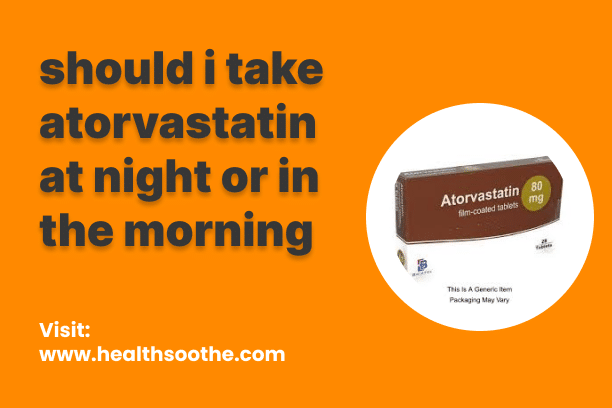Having a baby is a sweet thing, but you want it to be a planned event, and you want to be prepared for it. Nobody wants to be surprised with a package when they least expect it. As such, all sexually active females are faced with the question: “How can I protect myself from becoming pregnant?” One method of preventing pregnancy is using a birth control pill. Birth control tablets are oral contraceptives that contain low doses of synthetic hormones. These hormones hinder pregnancy in a variety of ways.
Types of birth control pills
Combination pills
These pills include a combination of two-cycle hormones that regulate your monthly flow: estrogen and progestin. Combination tablets increase the levels of these hormones to keep you from becoming pregnant. Typically, the hormone amount varies from pill to pill. A combination pill pack contains both active and inactive tablets. Active pills contain hormones, whereas inactive pills contain none. In nature, they are placebos, placeholders designed to keep you on track by requiring you to take a tablet every day until the next month begins. If you skip them and continue taking active tablets, you will stretch your cycle, reducing the amount of time you have between periods.
Based on the amount of estrogen and progestin they contain, combination pills may be monophasic or multiphasic.
Mono phasic
For a full monthly cycle, they have equal levels of the hormones estrogen and progestin. You can take or skip the inactive pills during the last week and still have your period.
Multi phasic
They change the progestin-to-estrogen ratio and the doses during the course of a 21-day cycle. During the cycle, it provides varying levels of hormones. You can take or skip the inactive pills throughout the final week of the cycle and still see your flow.
What are extended cycle pills?
Combination pills contain various combinations of active and inactive tablets. The most popular packs include 21 active tablets and seven inactive pills. There are other ones with 24 active tablets and 4 inactive pills.
For both of these combinations, your flow is visible during the week when you take the last pair of inactive pills. Depending on the combination, your inactive pill for the previous week could be either 4 or 7. Both combinations are intended to be taken for 28 days.
Extended cycle pills function differently. It is taken for 92 days and consists of 84 active pills and 7 inactive ones. This causes you to bleed only four times a year, on the days you take your inactive pills. Some continuous doses are designed to be taken all year round (a 365-day tablet). In some cases, this completely stops the bleeding, while in others, it significantly reduces the flow.
Advantages of combination pills
- Fight acne
- Prevent ectopic pregnancy
- Suppresses heavy period
- Stops pain associated with menstruation
- Prevents menstrual migraines
- May lessen bone thinning
How combination pills work
Combination pills stop the body from ovulating. This means that if you take combo tablets, eggs will not be released from your ovaries. The pill also alters the texture of cervical mucus, making it difficult for sperm to pass past the cervix and into the uterus. Mucus remains thick and sticky rather than becoming slippery. Some names of Combination pills include:
The most common types in Singapore are Yaz, Yasmin, Diane, and Mycrogynon which cost between $35 and $50.
Progestin-only pills (minipill)
They are estrogen-free and contain only one of the cycle hormones. Mini Pills only contain active pills. While taking this medication, you may or may not have your period. How does it function? They thin the cervical mucus to prevent sperm from reaching the egg. They may also thin the uterine lining, preventing eggs from implanting. Those who cannot tolerate estrogen will benefit from the mini pill.
They include
- Smokers
- People with a history of a blood clot
- Breastfeeding mothers
- Women older than 35
Examples of brand-name progestin-only pills include:
- Camila
- Errin
- Heather
- Jencycla
- Nor-QD
- Ortho Micronor
Advantages of birth control pills
- They are quite effective if you take them appropriately. Pills have a failure rate of 9%. If utilized correctly, it will yield a score of 9 out of 100.
- They can assist in regulating your flow, making it lighter and more predictable. However, if you take the mini-pills, you may have irregular menstrual bleeding.
- They have a reversible design. Anytime you want to have a baby, you can stop them and get pregnant as soon as possible.
Disadvantages
- It’s impossible for birth control pills to protect you from STIs.
- You must take a pill every day or risk becoming pregnant. You must always have a new pack on hand to avoid delays and maximize your chances of becoming pregnant.
Side effects of birth control Pills
- Spotting or bleeding between periods
- Breast tenderness
- Abdominal cramping
- Increase in vaginal discharge
- Irregular menstrual bleeding
- Acne
- Breast tenderness
- Decreased sex drive
- Nausea
- Headaches
- Decreased sex drive (libido)
- Depression
- Headaches
- Nausea
- Ovarian cysts
Should you use birth control pills?
You should see your doctor before taking any of these pills. Consider the following factors to determine which of these pills is best for you.
- A doctor may offer progestin-only therapy for women who are experiencing severe bleeding.
- Breastfeeding women should avoid estrogen-containing pills.
- A progestin-only pill may be the best option for women who have chronic health conditions such as stroke, breast cancer, or blood clots.
How to use your pills
Within 5 days of your cycle, use combo pills. It immediately begins to protect you. If you start later, you must take the pills for 7 days in a row before you are protected. During these times, use condoms if you must have sex. Combination pills can be taken on a flexible schedule. You can take it every day at the same time, within a twelve-hour window, and still be safe.
With mini-pills, you have to be a lot more precise with timing because they have a shorter time window. You should take them at the same time each day, within a 3-hour time frame. It would be safe to have sex after two medications within 48 hours after your flow ends. If you must have sex within 48 hours, use a condom. If you do not take them when you recall, you will be protected for two days.
Emergency pills
Emergency contraceptives are oral pills used to prevent pregnancy after sexual contact. They are exclusively available on prescription in Singapore. You can use them if you have missed your birth control pill for an extended period of time. That is when you haven’t taken your regular birth control pill for more than a day and have had unprotected intercourse during that time. The cost of emergency contraception is between $40 and $50. When taken within 24 hours of having unprotected sex, the morning-after pill can be 95% effective in preventing pregnancy. When taken between 25 and 48 hours afterward, it is 85 percent effective, and when taken 48 hours afterward, it is about 58 percent effective. They should be taken as early as possible after unprotected sex.
Emergency contraceptives, like birth control tablets, contain a synthetic version of the progestin hormone. They also function in similar ways. Ovulation is prevented, cervical fluid is thickened, and uterine lines are thinned. You may notice spotting after using them, and in some situations, emergency contraception will cause your menstruation to start earlier. Emergency contraception should only be used as a last resort and should not be your primary method of birth control.
Two popular emergency contraceptives are levonorgestrel (Postinor) and ulipristal acetate (ellaOne).
When you miss your pill
- If you forget to take an inactive medication, you are still safe.
- If you miss an active dose, take it as soon as you recall, even if you take two in a day. Following that, continue with the one pill per day program.
- If you missed an active combination pill during the first week of your cycle after your flow and have unprotected intercourse, use an emergency contraceptive. Take the most recent missed pill as soon as possible, and then resume your regular daily dose.
- If you miss mini pill within the first five days of your cycle and have unprotected intercourse, use an emergency tablet.
- Take the most recent missed pills as soon as possible and then resume your regular daily dose.
- If you haven’t taken your tablets for a few days, use a condom or avoid intercourse until you’ve taken them for 7 days in a row.
Where to get birth control pills
- In person visit a doctor or GP in any walk-in clinic. A doctor will prescribe the right pill for you and you can get them right there in the clinic.
- Online stores sell birth control pills. So, if you already know the pill to us based on what your doctor has prescribed to you, you can order from any online medicine store.
- Telehealth platforms like ZOEY, offer birth control pills. You can consult with a doctor, get a prescription and get it delivered to you.
Takeaways
Birth control tablets are one of the most reliable means of preventing pregnancy. Before you settle for them, make sure that your lifestyle allows you to utilize them on a daily basis, as this is the only way to ensure that they actually work. Emergency contraception should not be your primary method of contraception. Furthermore, if you are concerned about STIs, please use a condom in addition to taking birth control pills. Consult a doctor before starting any birth control pill. If you experience unbearable side effects, contact your doctor, who may prescribe a different method.






